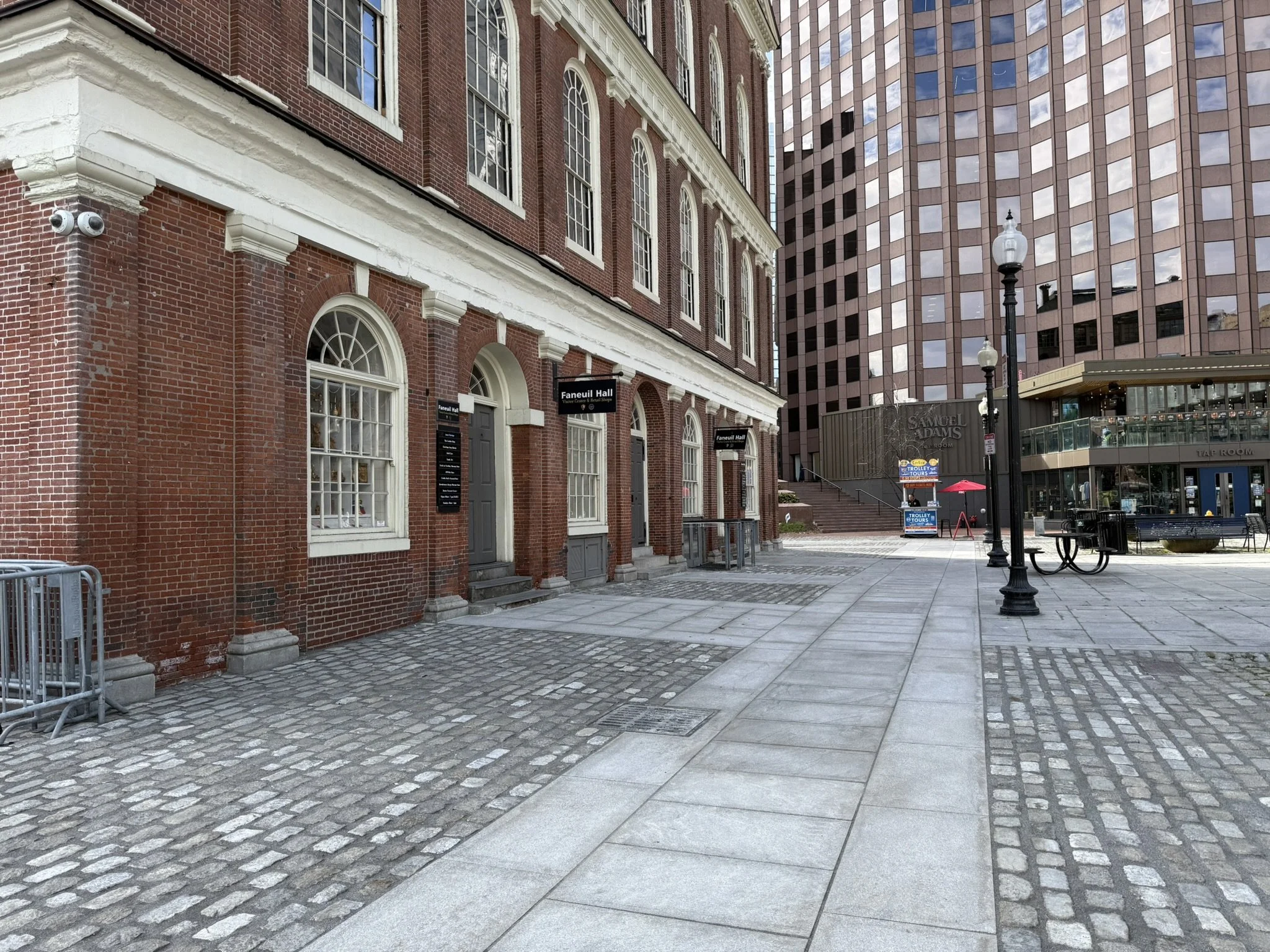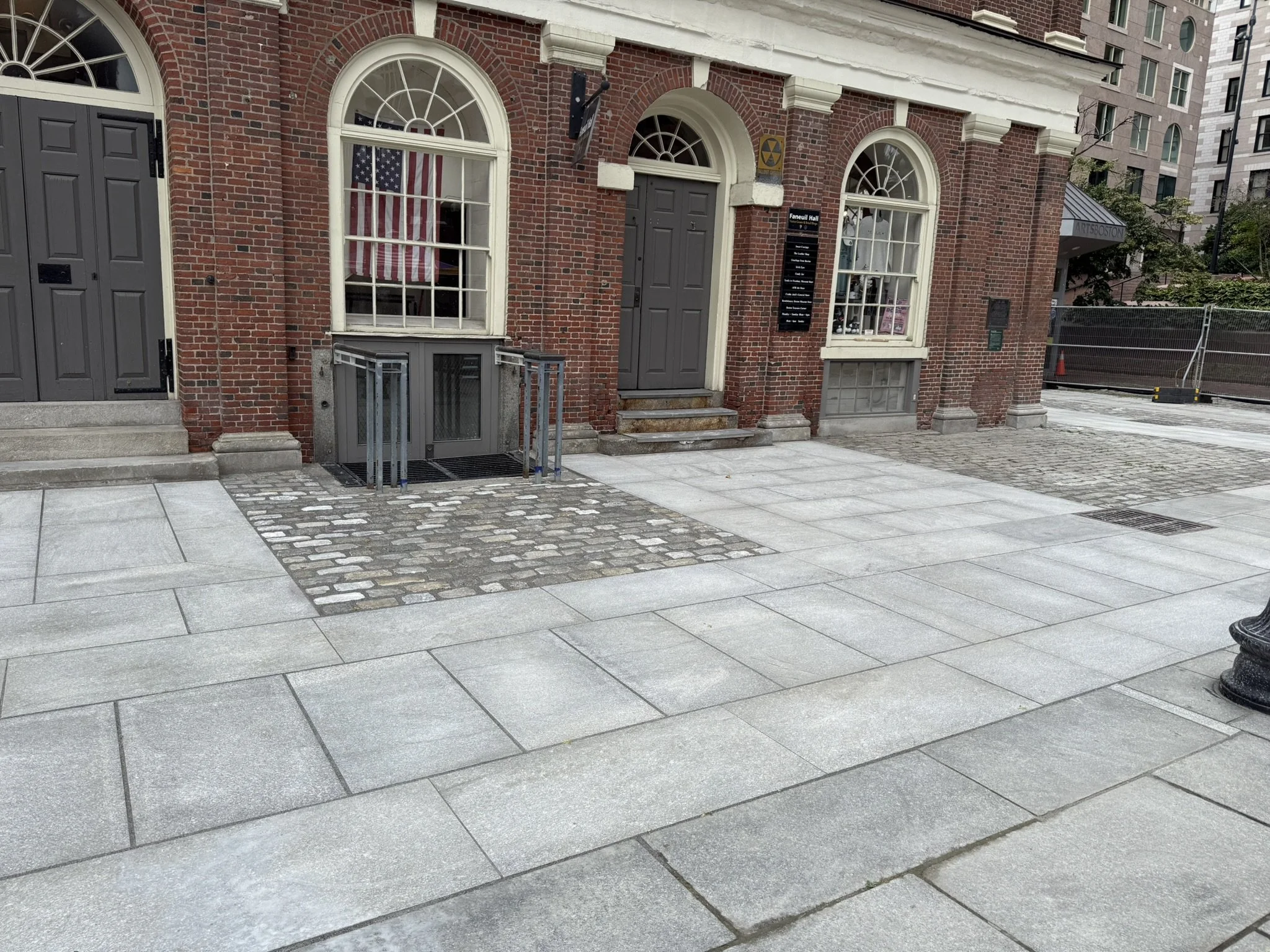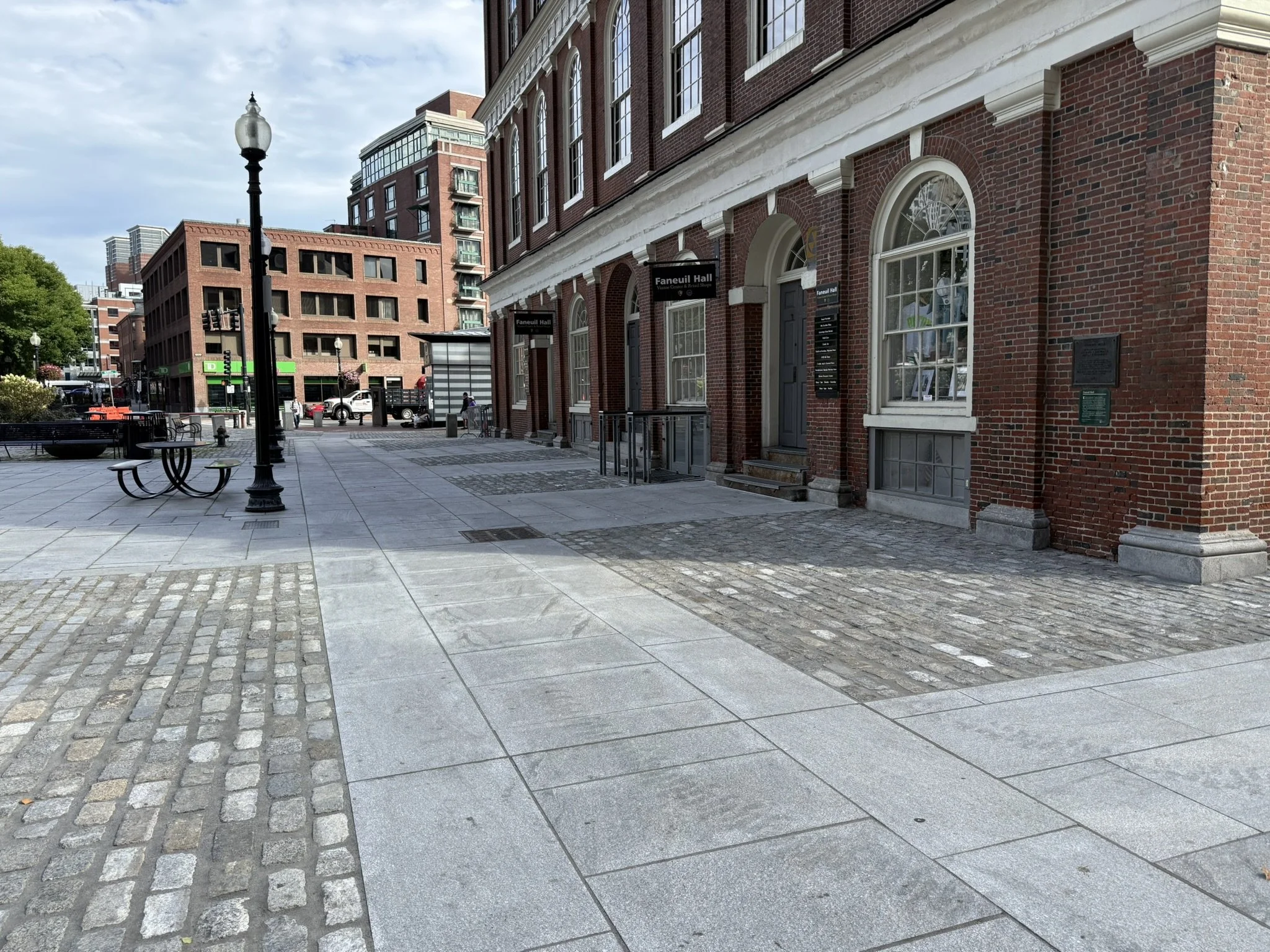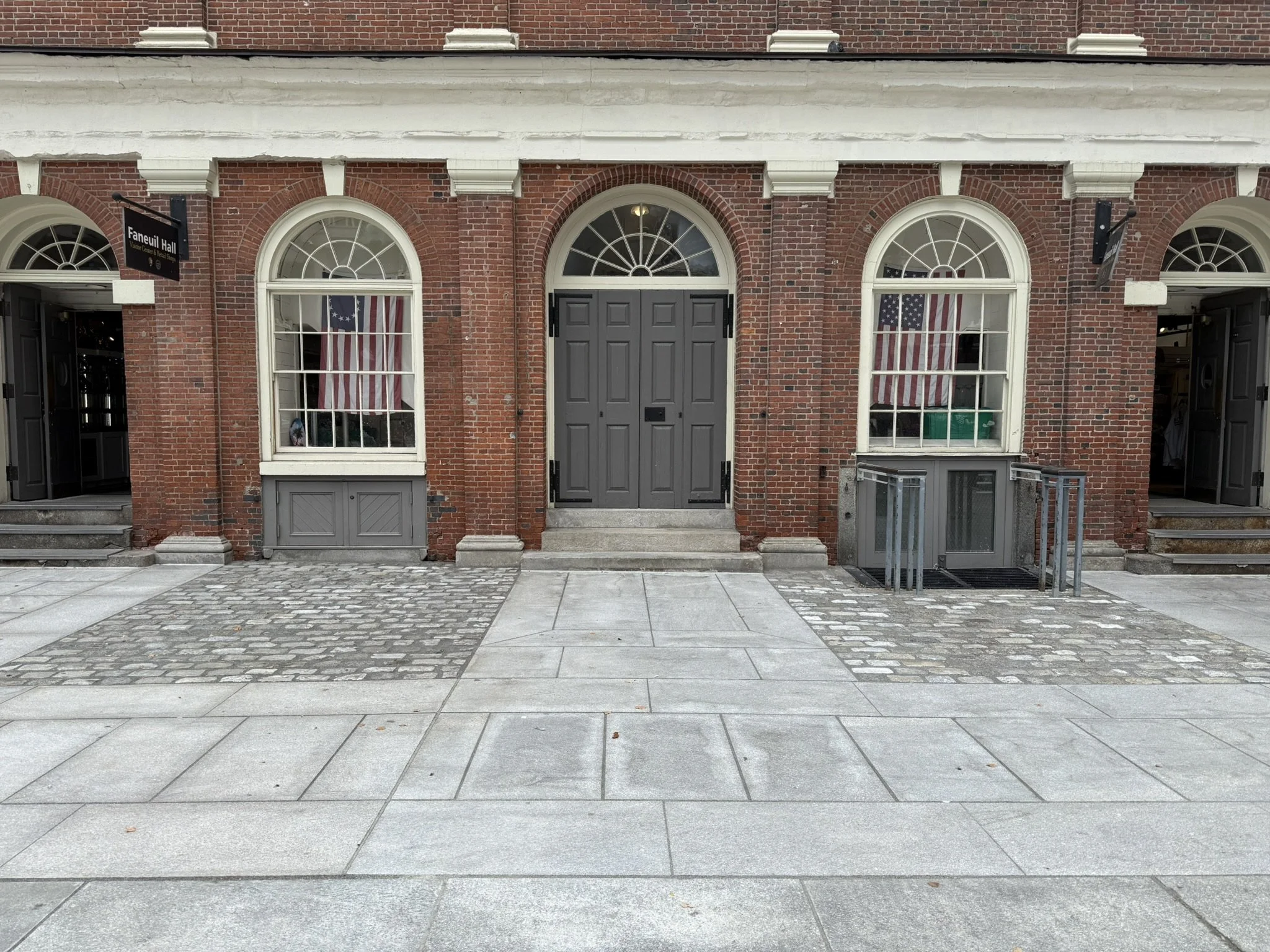FANEUIL HALL
Boston, MA
with City of Boston and CSS Architects
Located in the heart of downtown Boston, Faneuil Hall has been a site of public discourse and commerce for over 280 years. An important stop on the Freedom Trail, this National Historic Landmark draws over 18 million visitors each year to the Hall itself and to the surrounding plaza between Boston City Hall and Quincy Market. Over time, this extensive pedestrian use, combined with occasional heavy vehicle access, caused the granite paving to break and settle, creating trip hazards and accessibility challenges. Ryan Associates worked in collaboration with CSS Architects and the City of Boston to address these concerns.
Exploratory demolition revealed that many of the broken pavers were undersized and that sub-surface conditions were inconsistent. Design interventions included installing thicker pavers, constructing a robust new concrete slab, and strategically replacing areas of rough cobblestones with smooth granite pavers.
Faneuil Hall is a site with both a complicated history and a complex present. Often referred to as the “Cradle of Liberty,” the building’s original construction was paradoxically funded in part by profits from the trade of enslaved people. Physically, the Hall and the surrounding plaza have changed dramatically over the centuries. When first built, Faneuil Hall stood on the waterfront. Over time, the shoreline was filled in, creating land that now hosts Quincy Market, the Greenway, and Long Wharf. As recently as the 1960s, the plaza area was a parking lot, and the nearby historic statue of Samuel Adams stood within a rotary.
Today, Faneuil Hall and its surroundings are governed by an intricate web of public and private ownership and jurisdiction, which presents challenges with construction and sequencing. Ensuring safe access throughout the construction process remained a top priority.
Though relatively small in scale, this project added a meaningful layer to the ongoing story of the site. By addressing the physical risks and improving accessibility, Faneuil Hall is now better equipped to serve all who visit, helping this landmark continue to thrive for years to come.
Photos by: The Leslie Jones Collection, Digital Commonwealth, National Parks Service, Boston Public Library, and The Freedom Trail Foundation










